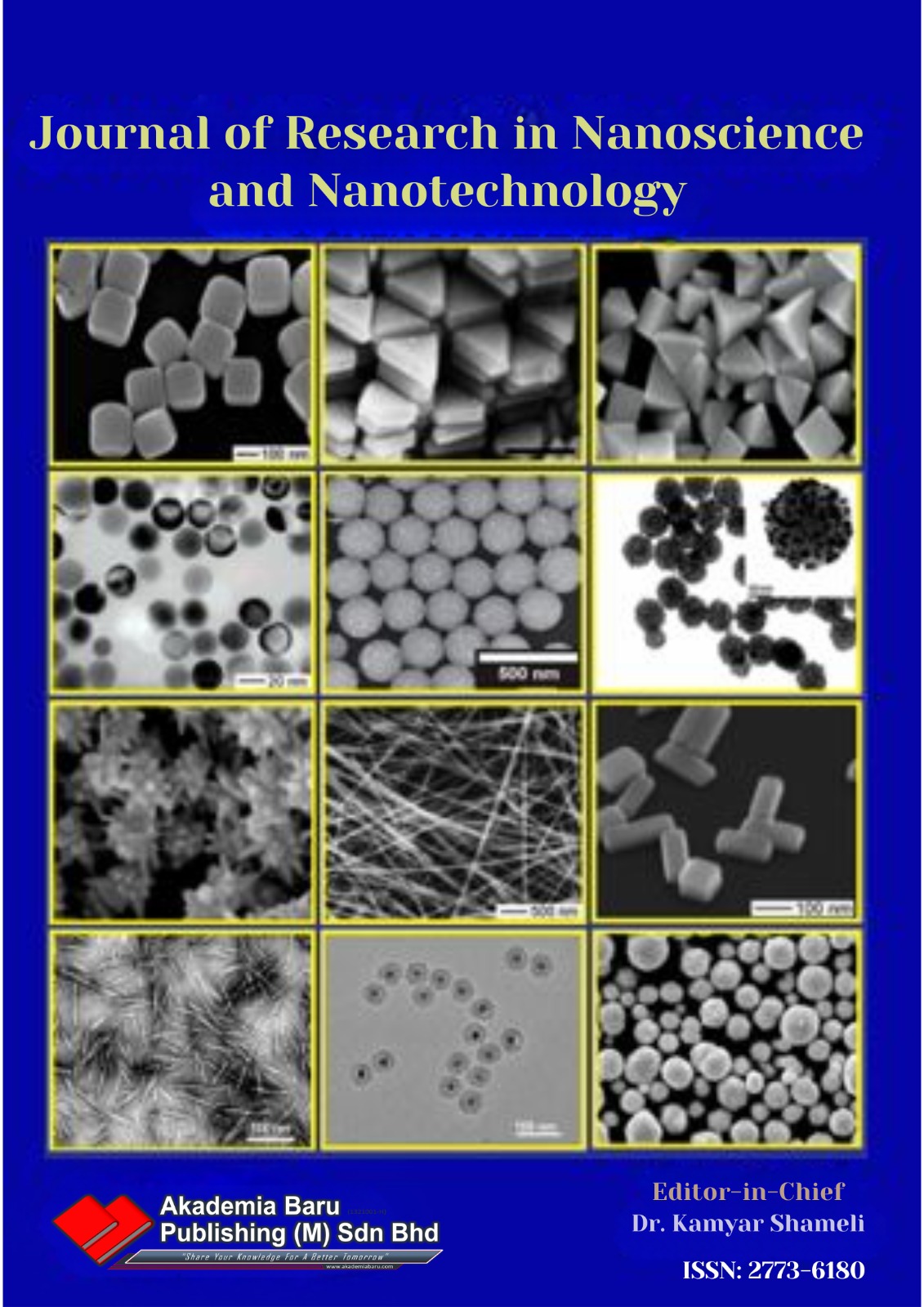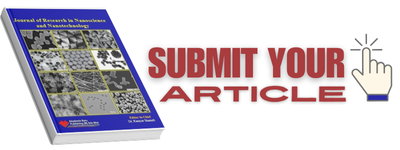
About the Journal
Journal of Research in Nanoscience and Nanotechnology (JRNN) aims to publish original research at the forefront of nanoscience scale and nanotechnology across all disciplines. The journal's scope encompasses the study of both fundamental phenomena at the nanoscale and applications of these phenomena. 'Nanotechnology' is taken to include the ability to individually address, control, and modify structures, materials and devices with nanometre precision, and the synthesis of such structures into systems of micro- and macroscopic dimensions. To be publishable in the journal, articles must meet the highest scientific quality standards, contain significant and original new science, and make substantial advances in nanoscience and nanotechnology scale. Research on the synthesis of materials should contain a significant innovation either in methodology, materials or demonstrated application. Through its unique mixture of peer-reviewed articles, the latest research news, and information on key developments, the journal provides comprehensive coverage of this exciting and dynamic field. Therefore, this journal welcomes the most significant original articles and forward-looking reviews on all aspects of nanoscience and nanotechnology. To ensure high editorial standards, every submitted article is initially assessed by the editors of the journal before being sent to independent referees. Articles can be rejected without refereeing after this initial assessment by the editors.
Contributions Include a Variety of Topics Such as:
- Synthesis of nanostructured materials in the context of natural or synthetic materials
- Functionalization and size-dependent properties of nanocrystals, quantum dots, and nanowires.
- Processing and templating of nanotubes and nanoporous materials.
- Tailoring of polymeric nanomaterials, nanoparticles, organic-inorganic nanocomposites, bionanocomposites, nanofibers, nanohybrids materials.
- Design and engineering of structural and functional nanomaterials.
- Nanosystems for biological, medical, drug delivery, chemical, catalytic, energy and environmental applications.
- Nanodevices for magnetic, imaging, diagnostic, photonic, electronic and sensor applications.
Why should you publish in Journal of Research in Nanoscience and Nanotechnology?
- Fast publication: we are committed to providing you with a quick, professional service to ensure rapid first decision, acceptance and publication. Once accepted, your article will be accessible to readers within 24 hours and will include a citable DOI.
- Open access: Journal of Research in Nanoscience and Nanotechnology offers authors the option to publish fully Open Access.
- Transfer opportunities: As well as accepting direct submissions, the journal also offers you a quick and easy solution to transfer your manuscript to another Akademia Baru Publishing journals if it does not fit that journal's scope or significance criteria. Articles are transferred along with peer review reports to save time and avoid duplication of work for referees.
- International Editorial Board: The JRNNis led by a team of experienced researchers.
Journal of Research in Nanoscience and Nanotechnology Welcomes Submissions of the Following Article Types:
- Research papers:Reports of high-quality original research work representing a significant advance in the field; not normally more than 8000 words.
- Letters:Outstanding concise articles, reporting important, new and timely developments. These articles should be deserving of priority review, and you are required to upload a justification statement along with your submission. Letters are rapidly reviewed to aid rapid review letters should be fewer than 5500 words in length.
- Topical Reviews:Written by leading researchers in their fields these invited articles present the background to and overview of a particular field, and report on the current state of the art. They are generally 10000–12000 words in length.
- Perspectives: Perspective articles are commissioned commentaries authored by some of the leading researchers in the nanoscience and nanotechnology community, aimed at highlighting the significance, impact, and wider implications of research appearing in Nanotechnology.
- Focus Collection Articles: Invited articles that form a special collection of papers on a specific theme of particular interest to the collection.
Special Requirements
Authors should note that the journal fully endorses the principles embodied in the Declaration of Helsinki. All investigations involving humans must be conducted in accordance with these principles and in accordance with local statutory requirements. All investigations involving animal experimentation must be conducted in accordance with the 'Guiding Principles for Research Involving Animals and Human Beings' as adopted by the American Physiological Society, and with local statutory requirements.
Peer Review
Journal of Research in Nanoscience and Nanotechnology operates a single-blind peer-review process, in which the reviewers know the identity of the authors, but the authors do not know the identity of the reviewers.
Inclusivity and Diversity
Akademia Baru Publishing recognizes that there are inequalities within the scientific publishing and research ecosystems. We are committed to a progressive approach to inclusivity and diversity and are working hard to eliminate discrimination to foster an equitable and welcoming publishing environment for all.
Ethics
Journal of Research in Nanoscience and Nanotechnology maintains the highest standards of publication and research ethics. Authors are expected to comply with Akademia Baru Publishing's Ethical policy.
Research Data
Journal of Research in Nanoscience and Nanotechnology has adopted Akademia Baru Publishing's data availability policy. Also, the plagiarism rate for accepted papers should be less than 20%.
Open Access
Journal of Research in Nanoscience and Nanotechnology is an open access journal.
Copyright and Permissions
We work with our authors to make sure that they understand their rights and responsibilities when they publish in Journal of Research in Nanoscience and Nanotechnology.









